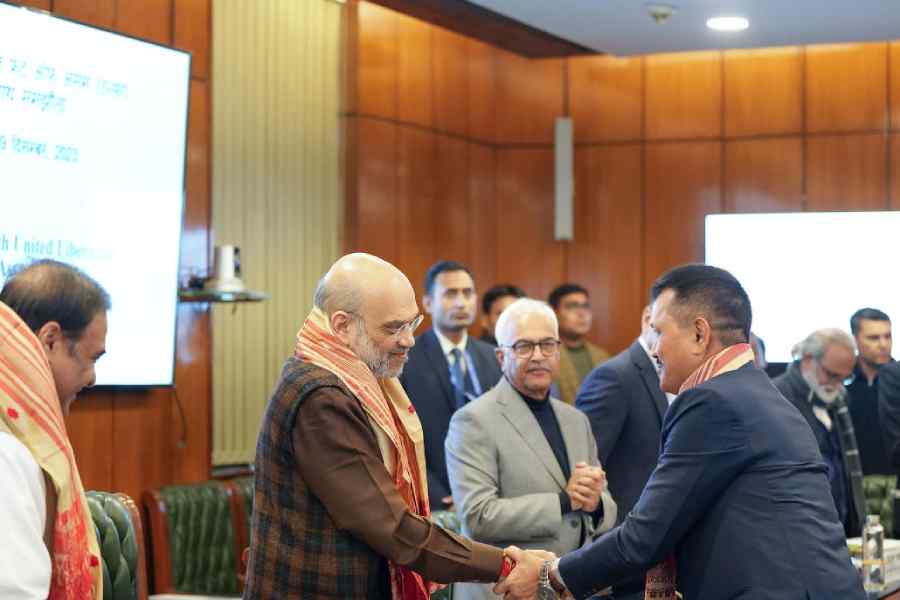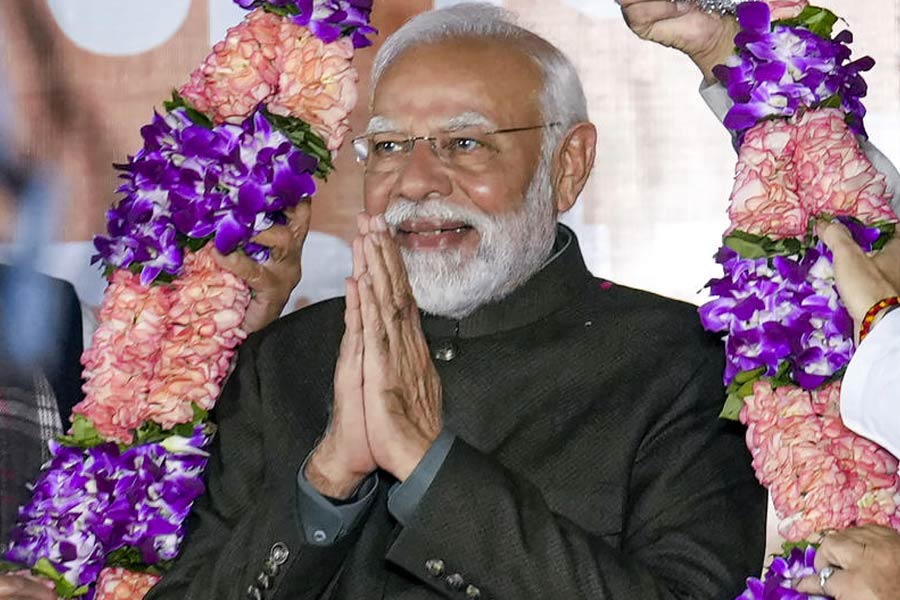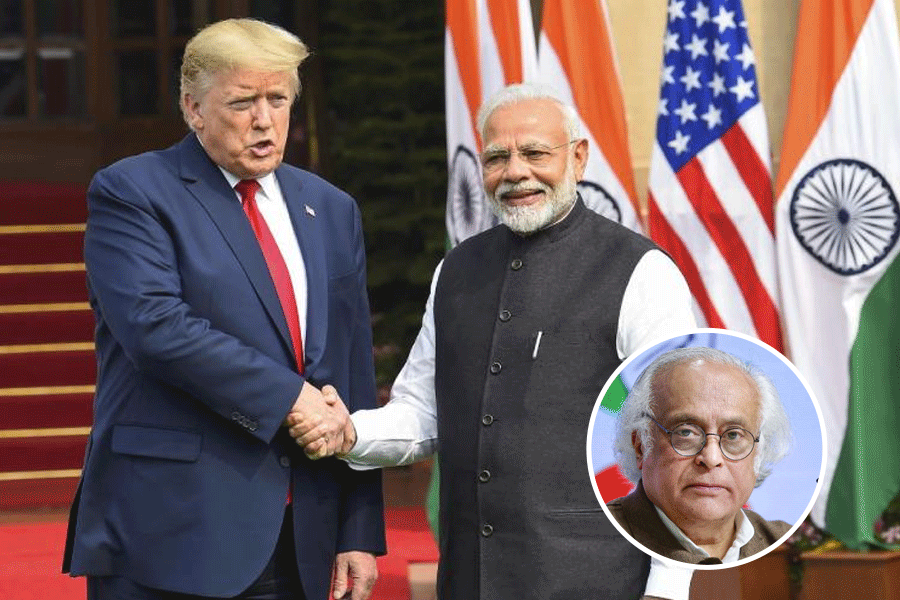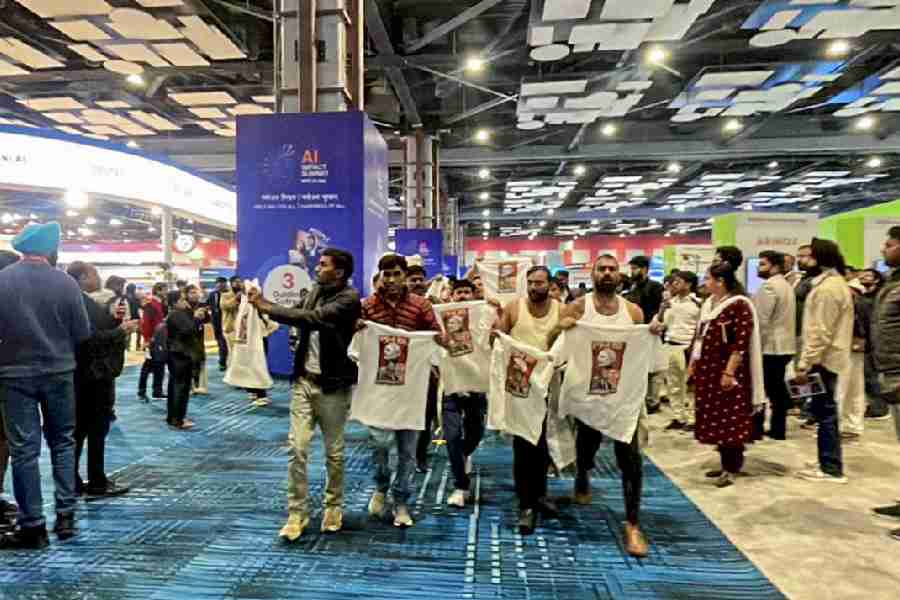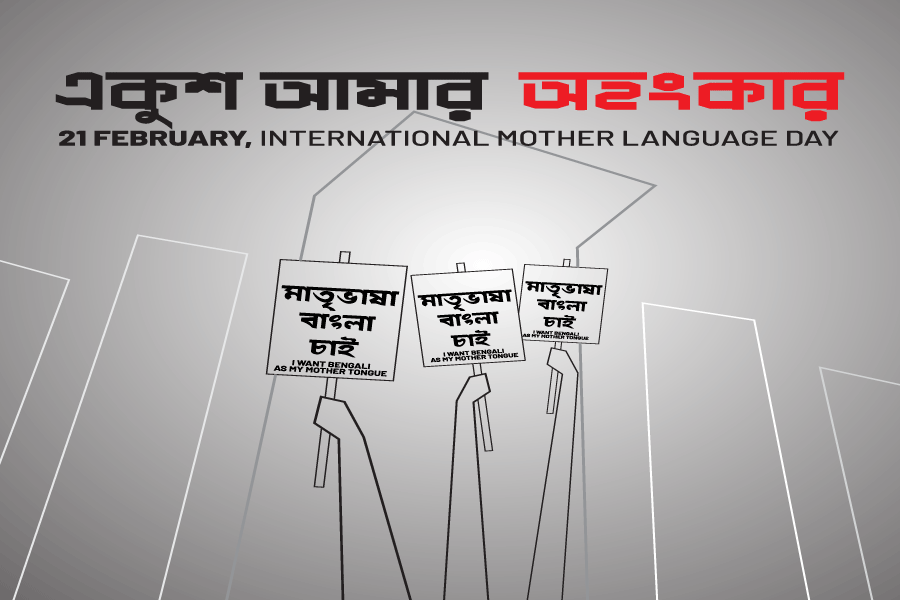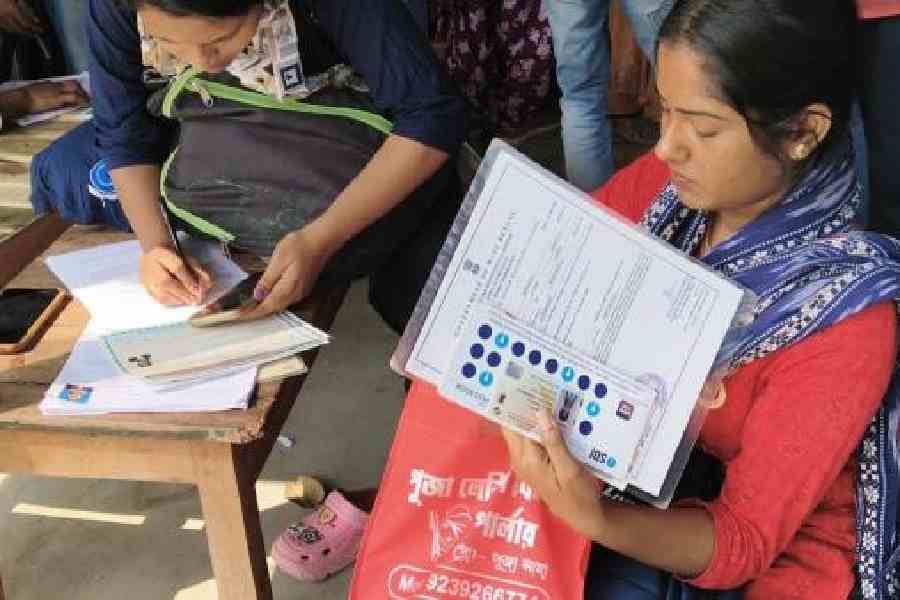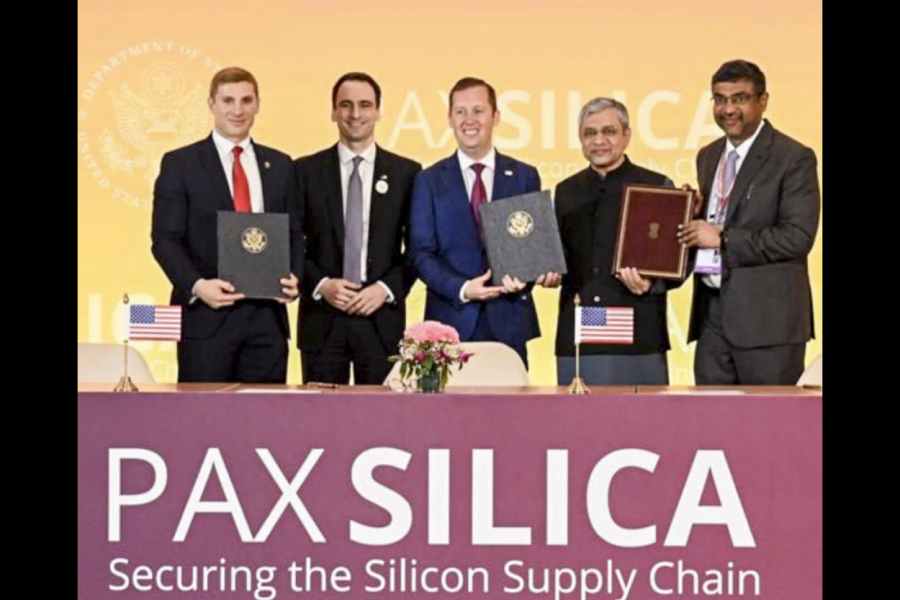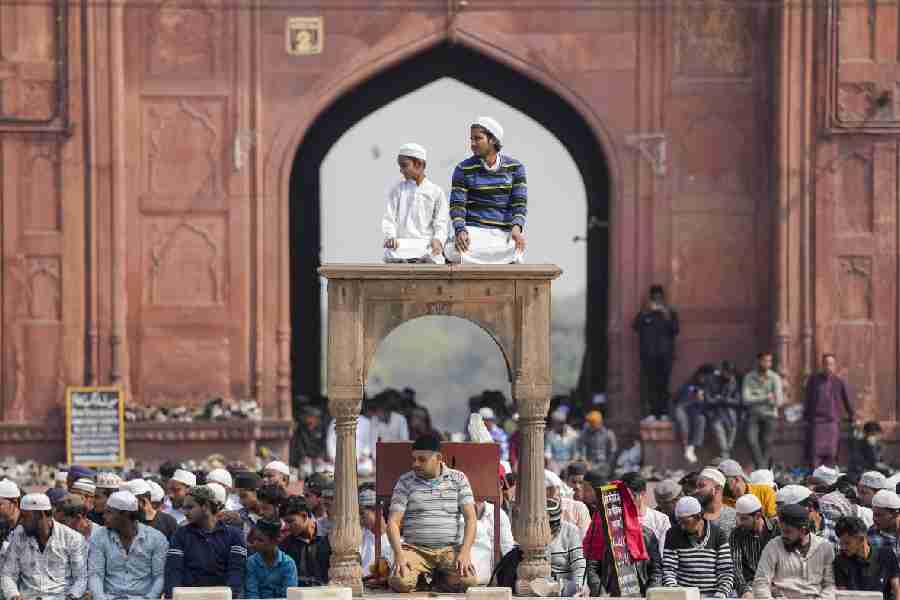The pro-talks faction of the United Liberation Front of Asom (Ulfa) on Friday signed a peace accord with the Centre and the Assam government agreeing to shun violence and join the mainstream.
Ulfa’s banned hard-line faction, headed by Paresh Baruah who continues to be a fugitive and is believed to be somewhere near the China-Myanmar border, is not part of the peace accord.
However, Assam chief minister Himanta Biswa Sarma said: “Baruah is likely to join the peace process now and the state government representatives are in touch with him.”
The agreement comes after more than a decade of negotiations between the government and Ulfa’s pro-talks faction, led by its chairperson Arabinda Rajkhowa. It was signed in the presence of Union home minister Amit Shah and Sarma.
Shah said that as part of the agreement, the Ulfa faction would be disbanded with its cadres giving up arms and all forms of violence, vacating their camps and joining the democratic process.
“There will be a time-bound implementation of the terms of the memorandum of settlement by the Centre and the Assam government,” Shah said.
He added that the Armed Forces Special Powers Act (AFSPA), which gives the military extraordinary powers to search, seize, arrest and shoot in troubled areas, had been lifted from 85 per cent of Assam’s territory.
According to the accord, about Rs 1.5 lakh crore will be invested in various development projects in Assam. Besides, during future delimitation exercises, the interests of the indigenous people of the state will be protected, Sarma said.
“The accord will give political security and constitutional safeguards to the indigenous people of Assam by way of delimitation and land rights,” Sarma said.
People familiar with the insurgency scene in Assam welcomed the accord but said the job was half-done and that all efforts must be made to get Baruah’s Ulfa (Independent) faction to the talks table.
Baruah’s faction had carried out three blasts in Upper Assam between November 22 and December 14 this year.
The undivided Ulfa was formed in 1979 seeking a “sovereign Assam”, a demand the Ulfa (Independent) has not abandoned. The Rajkhowa faction joined peace talks with the government on September 3, 2011.
Baruah’s faction has rejected several appeals by the government to join the mainstream. It wants sovereignty for Assam, among other issues, to be on the talks table — a demand the government cannot accept.
A former Assam police officer, who had been associated with multiple efforts to get the undivided Ulfa and later the Baruah faction to the talks table since the 1980s, said all peace agreements were “good”.
But he cautioned against “lowering our guard” and urged efforts to get the Baruah faction to join the peace process.
“That said, with the signing of the peace accord today, the possibility of the others coming out will improve,” he said.
“The State will have more opportunities to carry out development as it will have the consensus and participation of a large section of people who might otherwise have had anti-Bharat feelings. Thirdly, the younger generation will be discouraged from being part of such things.”
Ulfa’s formation 44 years ago had led to large-scale armed insurgency, prompting two army operations — Operation Bajrang and Operation Rhino — in the early 1990s. The first AGP-led government was dismissed in 1990 because of an escalation in Ulfa violence.
Ulfa split in 2012 after the Rajkhowa faction engaged in talks with the Centre, negotiating over “constitutional, political and economic safeguards” for the identity, land and natural resources of Assam’s indigenous population.
Rajkhowa and pro-talks faction general secretary Anup Chetia, who returned home from Bangladesh in 2015 after 18 years, are from the Sivasagar and Tinsukia districts, respectively. These are among the four districts still under the AFSPA in Upper Assam.
The peace accord is likely to have a “positive impact” on these two districts. Ulfa’s pro-talks faction has about 800 cadres, Chetia said.
Friday’s peace accord is the fifth the government has signed with rebel outfits from Assam — with the Bodo group NDFB in 2020, with Karbi groups in 2021, with Adivasi outfits in 2022 and one with the Dimasa National Liberation Army in April this year.
Shah said: “So far, 7,500 (militant) cadres have surrendered in Assam alone, and an additional 750 will do so after the signing of this accord.”
Jagadish Bhuyan, general secretary of the Assam Jatiya Parishad (AJP), a regional party born out of the anti-Citizenship (Amendment) Act movement in the state, welcomed the accord. He too wished that Baruah had been part of it.
Sarma said the tripartite accord would bring lasting peace to the state and “fulfil many of the aspirations of the people of the state”. He said the Centre and the Assam government would implement the terms of the agreement in full.
Sarma said that among the 10,000 people killed in Ulfa violence over the years, around 400 to 500 were security personnel and the rest were native people of Assam.

